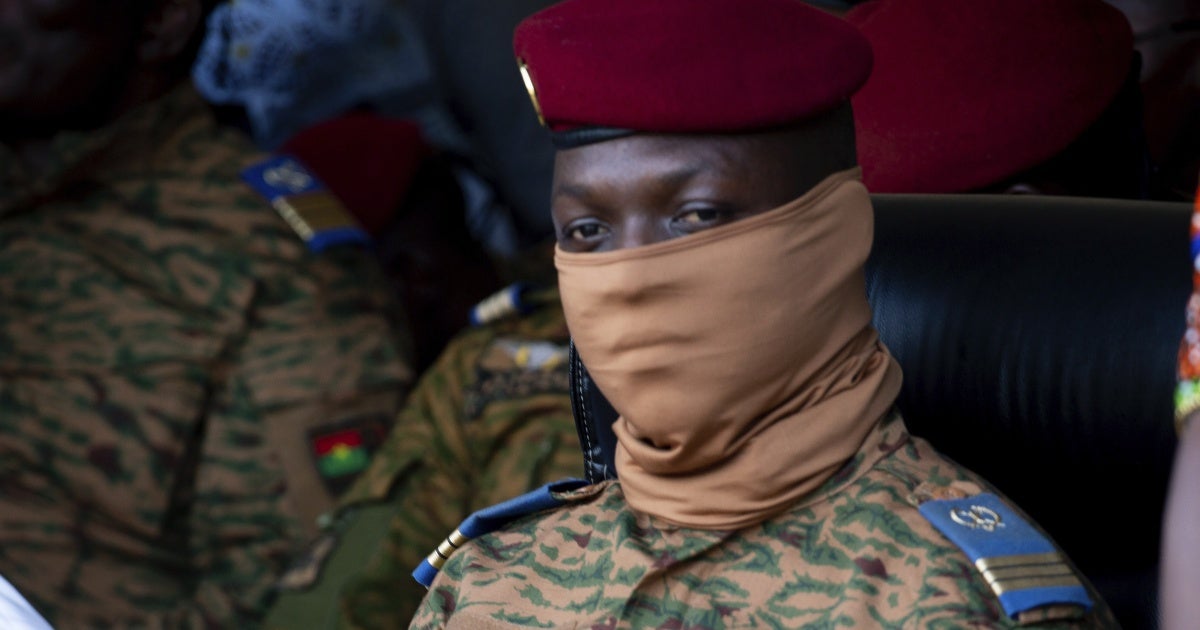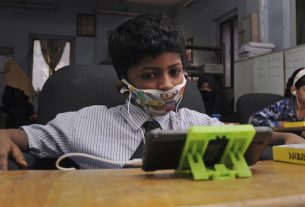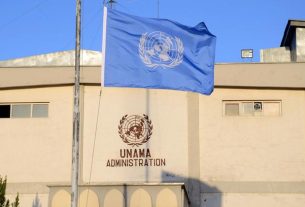(Nairobi) – Burkina Faso‘s military authorities are misusing an emergency law to unlawfully conscript magistrates – prosecutors and judges – who have opened legal proceedings against junta supporters, Human Rights Watch said today. These recent conscriptions come amid the Burkinabè junta’s growing repression of dissidents, journalists, human rights defenders, and political opponents.
Between August 9 and 12, 2024, the Burkinabè security forces notified by telephone at least seven magistrates, including four prosecutors, two deputy prosecutors, and an investigative judge, that they had been conscripted to participate in government security operations against Islamist armed groups in Kaya, Sanmatenga province, from August 14 to November 13. On August 14, six reported to a military base in Ouagadougou, Burkina Faso’s capital, to respond to their notifications, and have not been heard from since, two judicial sources said.
“The Burkina Faso junta isn’t fooling anyone by forcing prosecutors who are bringing legal proceedings against junta supporters into military service,” said Ilaria Allegrozzi, senior Sahel researcher at Human Rights Watch. “The authorities should immediately revoke these bogus conscription notices.”
The military authorities assert that the conscription orders are authorized under the April 13, 2023 “general mobilization,” part of a plan to recapture territory lost to Islamist armed groups, which control large swaths of Burkina Faso. The plan seeks to create a “legal framework for all actions” against insurgents and gives the president extensive powers to combat the insurgency, including requisitioning people and goods and restraining civil liberties.
On August 13, a court in Bobo-Dioulasso, in western Burkina Faso, ruled that the requisition orders of the two of the seven magistrates from this city were “manifestly illegal” and violated “the fundamental freedoms of the persons concerned,” and ordered the government not to carry them out.
In an August 15 statement, a coalition of three Burkinabè magistrates’ unions said that the authorities had targeted the seven magistrates because they dealt with cases involving people “claiming to be staunch supporters of the current government.” The union also said that “these requisitions are acts of humiliation and intimidation of magistrates” and that they are being carried out “despite judicial decisions declaring them null and void.”
The judicial sources said that among those targeted by the conscription orders is the prosecutor of the high court in Ouagadougou, who had instructed the police to investigate claims by residents regarding the enforced disappearances of their loved ones.
The magistrates’ union statement said that one of those conscripted is the judge of the high court in Ziniaré, Oubritenga province, handling the case of a junta supporter implicated in illegal mining activities that led to a landslide that killed about 60 people. It said that another is the prosecutor of the high court in Boromo, Balé province, who had instructed the police to investigate the alleged theft of livestock by a junta ally and civilian auxiliaries of the Burkinabè armed forces.
Human Rights Watch has extensively documented the use of unlawful conscription to silence dissent, as well as the abductions and enforced disappearances of dozens of government critics and dissidents since late 2023.
On June 28, Adama Bayala, a commentator on the private television channel BF1’s show Presse Échos, was reported missing after he left his office in Ouagadougou. Days before, a message posted on the pro-junta Facebook page Anonymous Élite Alpha referred to previous abductions of dissidents and journalists and warned that he “will be next.”
On June 24, gunmen claiming to be working for the intelligence services abducted Serge Oulon, director of the bimonthly publication L’Événement (The Event), from his home in Ouagadougou. In December 2022, Oulon wrote an article denouncing the alleged embezzlement by an army captain of some 400 million CFA (US$660,000) that were part of a budget allocated to support the civilian auxiliaries.
On June 18, Kalifara Séré, commentator on BFI’s TV show 7Infos, was reported missing after leaving a meeting with the Superior Council for Communication, Burkina Faso’s media regulator, to return to his office in Ouagadougou. People close to Séré told Human Rights Watch that the council questioned him about his June 16 TV commentary, in which he had expressed doubts about the authenticity of some photographs showing the head of state. The three men remain missing, and authorities have not disclosed any information on their whereabouts.
In February, Human Rights Watch reported six other cases of possible unlawful conscriptions of activists and opposition party members. They are Rasmané Zinaba and Bassirou Badjo, both members of the civil society group Balai Citoyen; Guy Hervé Kam, a prominent lawyer and coordinator of the political group Serve and Not be Served (Servir Et Non Se Servir); Ablassé Ouédraogo, chair of the opposition party Le Faso Autrement (The Alternative Faso); Daouda Diallo, a prominent human rights activist and secretary general of the Collective against Impunity and Stigmatization of Communities (Collectif contre l’Impunité et la Stigmatisation des Communautés); and Lamine Ouattara, a member of the Burkinabè Movement for Human and Peoples’ Rights (Mouvement Burkinabè des Droits de l’Homme et des Peuples). At least four of them appear to have been unlawfully conscripted.
On December 6, 2023, a court in Ouagadougou had ruled that the conscription orders concerning Zinaba and Badjo were illegal and ordered the authorities to suspend them, but they were still forced to go.
While governments have the authority to conscript members of the civilian population age 18 and over for national defense, conscription should be authorized and in accordance with domestic law. The conscription law needs to be carried out in a manner that gives the potential conscript notice of the duration of the military service and an adequate opportunity to contest being required to serve at that time. Conscription also needs to be carried out according to standards consistent with nondiscrimination and equal protection under law. The use of conscription for politically motivated purposes violates international human rights protection standards.
“The Burkina Faso junta seems to have few qualms about interfering with the justice process to protect its supporters from prosecution,” Allegrozzi said. “The junta should immediately stop using conscriptions to silence dissent and respect the independence of the justice system.”



